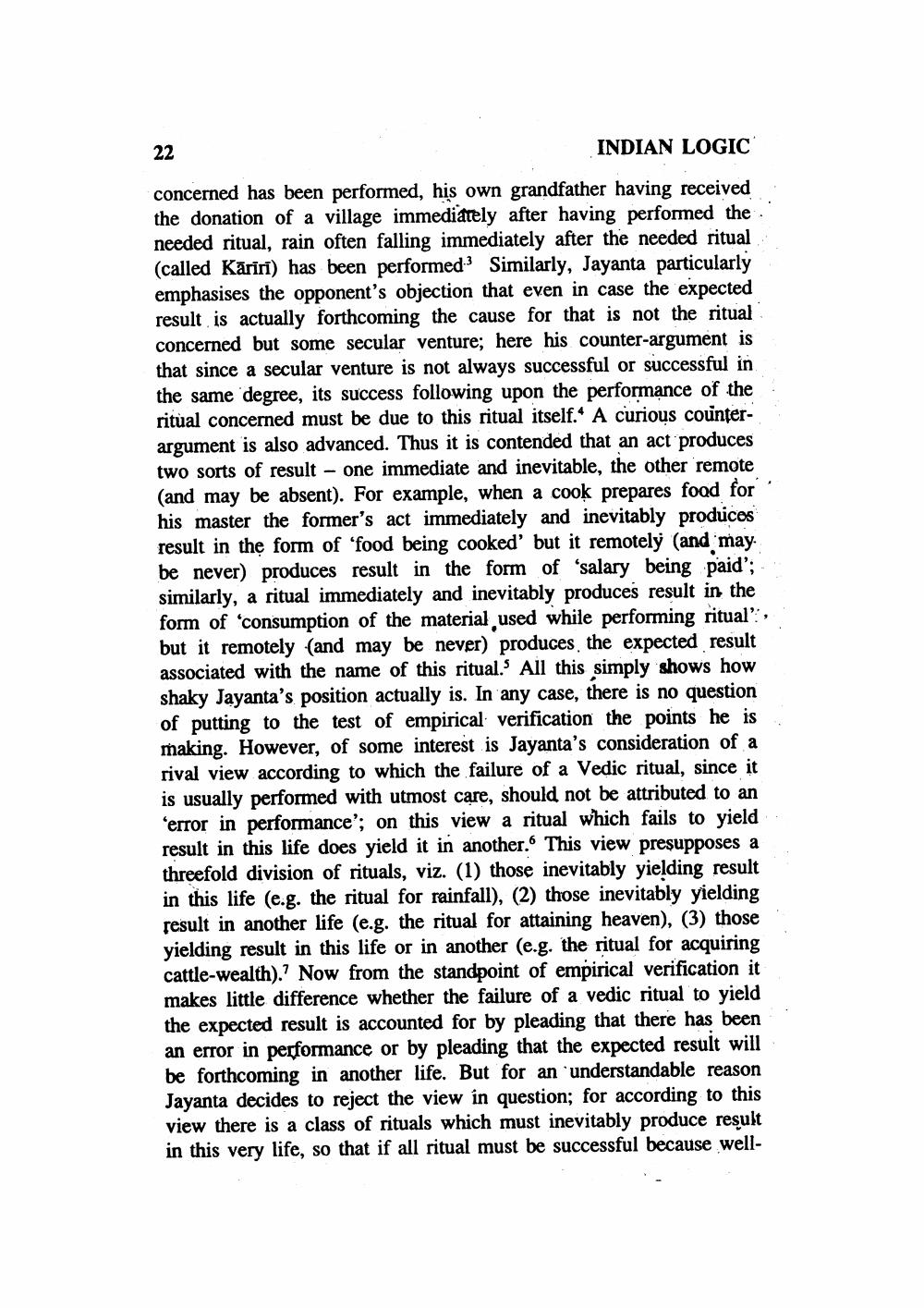________________
INDIAN LOGIC
concerned has been performed, his own grandfather having received the donation of a village immediately after having performed the needed ritual, rain often falling immediately after the needed ritual (called Kariri) has been performed Similarly, Jayanta particularly emphasises the opponent's objection that even in case the expected result is actually forthcoming the cause for that is not the ritual concerned but some secular venture; here his counter-argument is that since a secular venture is not always successful or successful in the same degree, its success following upon the performance of the ritual concerned must be due to this ritual itself. A curious counterargument is also advanced. Thus it is contended that an act produces two sorts of result one immediate and inevitable, the other remote (and may be absent). For example, when a cook prepares food for his master the former's act immediately and inevitably produces result in the form of 'food being cooked' but it remotely (and may be never) produces result in the form of 'salary being paid': similarly, a ritual immediately and inevitably produces result in the form of 'consumption of the material used while performing ritual". but it remotely (and may be never) produces, the expected result associated with the name of this ritual. All this simply shows how shaky Jayanta's position actually is. In any case, there is no question of putting to the test of empirical verification the points he is making. However, of some interest is Jayanta's consideration of a rival view according to which the failure of a Vedic ritual, since it is usually performed with utmost care, should not be attributed to an 'error in performance'; on this view a ritual which fails to yield result in this life does yield it in another. This view presupposes a threefold division of rituals, viz. (1) those inevitably yielding result in this life (e.g. the ritual for rainfall), (2) those inevitably yielding result in another life (e.g. the ritual for attaining heaven), (3) those yielding result in this life or in another (e.g. the ritual for acquiring cattle-wealth). Now from the standpoint of empirical verification it makes little difference whether the failure of a vedic ritual to yield the expected result is accounted for by pleading that there has been an error in performance or by pleading that the expected result will be forthcoming in another life. But for an understandable reason Jayanta decides to reject the view in question; for according to this view there is a class of rituals which must inevitably produce result in this very life, so that if all ritual must be successful because well
22




